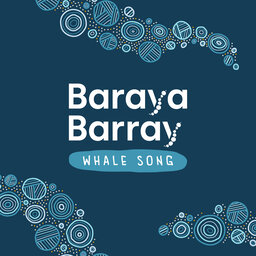Baraya Barray ~ Whale Song brings attention to the origin of First Nations languages and the important lessons we can learn from our natural environment in caring for Country by celebrating saltwater songlines of the East Coast following the movements of Humpback Whales from Lutruwita (TAS) to Meanjin (QLD). Coinciding with the International Decade of Indigenous Languages, during the three year program, communities across the east coast will connect young First Nations people with Elders, Language Custodians, scientists, poets and musicians, through On Country immersive experiences, to learn about and respond to our original language holders - the Whales. https://redroompoetry.org/projects/baraya-barray-whale-song/ Recordings provided here for educational purposes are excerpts of datasets held by the Australian Antarctic Data Centre. Please follow instructions listed in the citation reference provided at http://data.aad.gov.au/aadc/metadata/citation.cfm?entry_id=AAS_4102_longTermAcousticRecordings when using these data. This dataset has been collected under the International Whaling Commission’s (IWC) Southern Ocean Research Partnership (SORP). The IWC-SORP ethos is one of open collaboration, communication and data sharing. Data provided by the International Whaling Commission’s Southern Ocean Research Partnership were all based upon non-lethal samples collected under a protocol approved by the Australian Antarctic Program Animal Ethics Committee (AAPAEC). These data were provided by the Partnership for the purpose of collaborative investigation. The Australian Antarctic Division welcomes your interest in Australia’s Antarctic Program. Where material is published in a printed or electronic format (including on the internet), you are requested to acknowledge the works as listed below. If used on social media please tag the Australian Antarctic Division @AusAntarctic, #AusAntarctic.

